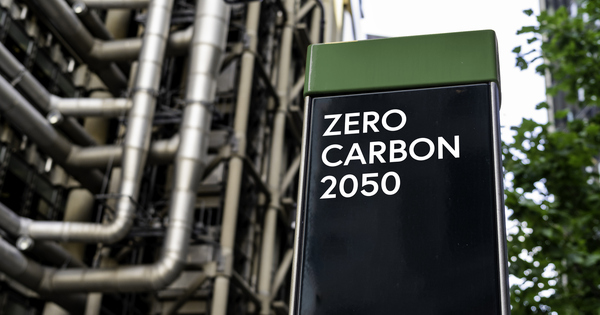
Sector Transition Plans: UK guidance launched to help industries develop net zero roadmaps
Business Green 3 months ago

layersDaily Sustainability Digest
Published about 2 hours ago
New operational data from the UK underscores a decisive transition in sustainable construction, shifting focus from theoretical decarbonisation to verified performance in real conditions. Heat pumps have maintained comfort levels equal to or surpassing gas boilers during recent sub-zero periods, reinforcing confidence in low carbon design and accelerating the case for electrification. The evidence supports the development of energy-efficient buildings that meet both sustainability targets and life cycle cost efficiency, lowering the overall carbon footprint of construction.
Show MorearticleFeatured News

The Critical Importance of Adhering to RIBA Stages in Achieving BREEAM Certification
6 days ago

Clancy Construction – Over a decade of award-winning management
1 day ago

Richest one per cent blow their share of 2026's global carbon budget in 10 days
2 days ago

Sinking trees in Arctic Ocean could remove 1 billion tonnes of CO2
2 days ago

Price expectations in the latest QES: what it means for inflation in 2026 - British Chambers of...
2 days ago

'The data tells a different story': Heat pumps bust reliability myths during UK cold snap
2 days ago
play_circleFeatured Videos

Why Sustainability Feels Hard, And What Actually Breaks Projects
3 days ago

How Graphene is Changing the World … Right Now
5 days ago

How Solar Changed in 2025 (And What's Next)
26 days ago

Greenwashing: Tricks & Real Examples of Corporate Deception
27 days ago

Une entreprise vraiment durable est-elle possible? Pièges & exemples
1 month ago

Ana Belizário: ‘Timber should be the material of choice in the global south’
1 month ago
podcastsFeatured Podcasts

173 Giulio Bonazzi of Aquafil – pioneering regenerative nylon
20 hours ago

Laura Eigel
2 days ago

Redefining Luxury: Soil, Sovereignty, and Community with Thomas Patton of Lega Vera Farm Village
3 days ago

Financing Climate and Nature Together: AIIB’s Climate Strategy in Brazil and Beyond
5 days ago

Decarbonizing Campus Design and Mentoring the Next Generation with Allison Wilson
5 days ago

Chart Your AI Roadmap with ABM’s Kayla Oliver and Bob Clarke
6 days ago
Get your opinion heard:
Whole Life Carbon is a platform for the entire construction industry—both in the UK and internationally. We track the latest publications, debates, and events related to whole life guidance and sustainability. If you have any enquiries or opinions to share, please do get in touch.
WLC Assistant
Ask me about sustainability











